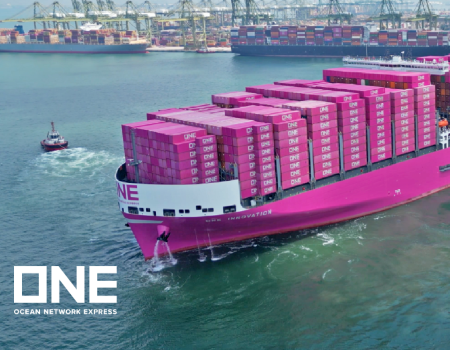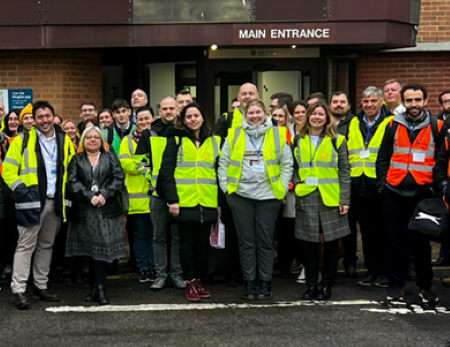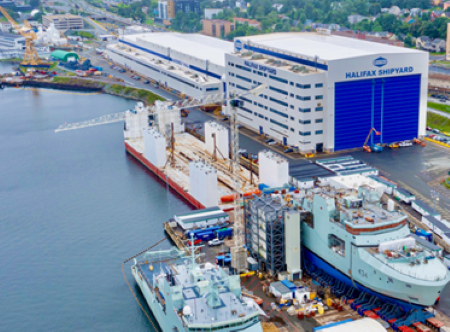Trade credit insurer Atradius explain how businesses can export
successfully by taking the plunge and managing the risks effectively
Mark Twain once declared that he was “seldom able to see an opportunity until it had ceased to be one”. He wasn’t alone. For businesses today the world can seem a perilous precipice or a business paradise. For all businesses, the notion of exporting to pastures new can be a daunting one – knowing where to start, which export market to focus on, trying to assess the risks involved, understand what the pitfalls may be. For small to medium sized businesses – it’s a lot to take on. Yet, so far in 2014, British businesses have successfully exported £228.8 billion of goods overseas. And 110 British businesses have won the Queen’s Enterprise Award for International Trade this year. So, surely some of them must be doing it right?
The good news is that they are, indeed, doing it right. In fact, any business can export successfully – by choosing the right risks to take and by managing them effectively. Taking your products or services to an overseas market is a big step.
Trade credit insurer Atradius knows this only too well. Atradius can trace its history back almost a century to when the very concept of trade credit insurance was born. The Government of the day created the Export Guarantee Department in order to encourage businesses to export using a ‘safety net’ with a view to stimulating economic growth in the aftermath of World War One. Today, the market is much broader and encompasses commercial providers such as world leader Atradius, although the purpose of trade credit insurance remains basically the same. With the benefit of over 95 years of experience helping businesses to trade safely overseas, Atradius offers products and services far better suited to meet the challenges thrown up by the world’s current geopolitical and economic climate.
So, where do we start? Imagine you’ve won a new client. You’re excited about it. But how are you going to make sure that your dream client is going to pay you for the goods or services you are about to supply? This is where Atradius comes in – by making sure that you know what you are getting into, checking the creditworthiness and financial strength of any business partner you choose.
Since the global economic shocks of 2008-2009, businesses have become skilled at handling the day-to-day cash flow trials thrown up by a volatile economy – but the present economic climate also presents other, more complex challenges too. Cultural differences in payment practices are something that is often overlooked, although pretty rudimentary. If you are planning to export to Italy for example, can your business withstand the impact of 60 or even 90 day payment terms, as such terms of payment are far from unusual? And China – did you realise that it is, in fact, illegal for a non-Chinese business to attempt to collect an overdue debt? These are the kind of things businesses need to be aware of before taking the plunge – the kind of things that Atradius makes businesses aware of, day in day out.
The thorny issue of getting paid is at the heart of everything Atradius undertakes on behalf of its policyholders. In Western Europe, thirty days is considered pretty standard for general payment terms. And most businesses presume that their trading partner shares a similar attitude towards getting paid. But making this kind of assumption when entering a new export market is, at best, naïve, and at worst can create enduring problems for cash flow.
Twice a year the trade credit insurer undertakes the Atradius Payment Practices Barometer, a major survey of the real life experience of thousands of businesses around the globe, region, by region, in order to build and share a comprehensive and true picture of what businesses are really experiencing at grass roots level. In Atradius’ recent study of the Americas, for example, the study revealed that over half of the value of B2B receivables more than 90 days overdue were written off as uncollectable by businesses in Brazil, Canada, Mexico and the United States. For a small business, that could represent a significant percentage of turnover. Results such as these underline clearly the need for all businesses to be vigilant in their credit management and to protect cash flow and profitability against non-payment through instruments such as credit insurance. Even in so-called “boom” economies such as India and China, many factors are at work which could impact a business negatively if they aren’t appropriately monitored. Erratic commodities prices, for example. A simple thing like the impact of rising steel prices and its bearing on building or automotive manufacture, can have a severe knock-on effect upon the supply chain for businesses in either sector.
But what happens when the thing most dreaded by exporters happens? Your client is on the other side of the world and a conflict erupts or act of terrorism takes place. Not getting paid because of an invoice anomaly or cultural difference is one thing – not getting paid, or even being prevented from your contractual obligations because passage of your goods has been interrupted as a result of natural disaster, terrorist activity of even war, is quite another.
War and terrorism or related activity have become an increasingly real possibility facing today’s business. Indeed, this has led to Atradius developing their Export policy to offer a broadening of some classifications of cover – including terrorism.
So, if a business were to purchase enhanced export coverage from Atradius, what would this mean? Perhaps this is illustrated by the example of company X who export bespoke car parts for specific models. Extremist activity on the other side of the world lost company X an entire shipment earlier this year – it was diverted and became impossible to trace, probably stolen. The exporter had done everything right, all the correct paperwork was in order, there was no dispute nor negligence. The goods had been diverted and subsequently vanished due to an unforeseen act of terrorism and company X was able to make a valid claim against their Atradius policy.
Taking another example, should a shipment headed for Ebola hit Western Africa be diverted (following border closure) to another local port, Atradius will consider indemnifying up to 90% of the additional costs associated with the costs of diversion . In real terms, this minimises the costs associated with surprises, and provides invaluable working capital.
Perhaps more important, though, is the fact that the Atradius team acts as the eyes and ears on the ground for businesses like company X. With local, specialised risk underwriters on the ground in 160 locations around the globe, the Atradius team has a better idea than anyone what’s really going in any corner of the world. They are from those local business cultures and operate daily within them; they speak the local languages; they understand the legal infrastructure. Most critically, they are meeting local companies, day in, day out. If you want to know about a potential trading partner, the chances are that Atradius already has an established working business relationship with them.
What having these Atradius people on the ground means for business is that any looming socio-political crisis is likely to have been picked up before you even ship your goods or services overseas. It also means that the Atradius’ underwriting team will have alerted you to the fact that this may compromise the arrival of your shipment. Ultimately, this means you can make a clear, informed decision about whether supplying your product is a risk worth taking.
Marc Jones, Head of Sales for Atradius UK, thinks that businesses need to take risks and enter new markets – but with the right risk support in place. He explains: “Businesses need to take risks in order to grow. And growth often begins with a new opportunity in a new market. The question is, how is it possible to monitor the risks present in a far flung location when you are trying to manage your business here too. It isn’t easy, when the world surrounding you is in a state of continual flux.”
But Marc is a strong advocate of taking the plunge.
“There is so much good news around certain markets that British businesses would be foolhardy not to take advantage of them. Take Asia, for example. Singapore is robust and established; Vietnam and Thailand continue to broaden their manufacturing bases – indeed Vietnam is proving extremely cost effective as inflation takes hold in China; Thailand continues to grow despite recovery from flooding; even this handful of countries offer a wealth of opportunity to businesses who are up for it, particularly those in automotive, electronics and apparel.”
Africa also provides some promising prospects for businesses looking for new opportunities. Atradius currently offers cover in all but six African states and has observed a significant increase in Asian businesses making the most of overseas trade with Africa, a pattern that European businesses could do well to follow.
At present, China is Sub Saharan Africa’s largest single trading partner, but Chinese demand is highly concentrated in a few countries, notably South Africa, Angola, and the Democratic Republic of Congo. Atradius underwriters are also forecasting that an emerging middle class in many African states will further increase demand for imported consumer goods. India is not far behind, with trade with Africa growing by nearly a third each year since 2005, despite the global economic crisis. And Japan, whose share of African trade has plummeted since the 1990s, is keen to regain lost ground and open up new markets for Japanese firms too. British businesses, take note.
So, we’ve established that expanding your business to overseas markets might seem like a big step, but that with the right advice and support, new horizons may be closer than you think – and the opportunities are certainly out there.
The benefit of working with an established trade credit insurer like Atradius is that they have done the hard work on your behalf. They hold intelligence on 100 million businesses around the globe, for example. The chances are, one of them is your prospective trading partner. By managing the risks on your behalf, you are free to concentrate on what’s important – running your business. This means that as you grow your business, you can do so safe in the knowledge that Atradius is working to secure your cash flow.
Marc Jones explains further: “Successful businesses know that it is cash flow and not sales that makes the difference. Making a sale is one thing – getting payment for it is another. Having the basic foundation of secure working capital means that a business has more options and can focus on new profitable sales. And that is where a trade credit insurance policy comes in.”
The other benefit to trade credit insurance is that once the deals are done, Atradius has an extensive collections network available to collect your debts – even in China where it is illegal for a British business to do so. Aside from retrieving monies your business may be owed, it holds another key appeal. In distancing yourself from the debt collection process, there is no need to taint any good business relationships, enabling businesses to continue to focus on what’s important – maintaining good customer relations.”
Trade Credit Insurance can seem daunting to the uninitiated, but Atradius has launched a new policy, Modula Export, which specifically addresses the needs of businesses hoping to make the most of export opportunities in new markets. Modula Export is flexible, simple to use and easy to access. Using Atradius’ online management system, Serv@net.
The policy offers broader cover than ever before, across a multitude of eventualities, including:
Insolvency
Protracted default
Non-acceptance of the goods by the buyer
Payment Moratoriums – imposed by Government in buyer’s country
Transfer Delay
Discharge of debt
War – including civil war, hostilities, rebellion, insurrection, revolution, riot, terrorism
Natural disaster
Contract frustration
Export License cancellation
Public Buyer default
Diversion of voyage
Marc Jones concludes: “Atradius has experience and expertise, but we know that our industry evolves at a rapid pace and through our daily interactions with literally millions of businesses we are able to anticipate and adapt our offering to meet the challenges of tomorrow as well as today. This means that our products are incredibly relevant – designed to meet the real, specific needs of all our clients, from small businesses to large multinationals. We measure our own success through that of our customers. Our aim is to provide a solid foundation, so that our clients can go out and build their export businesses with confidence.”
www.atradius.co.uk / exporthelp@atradius.com







